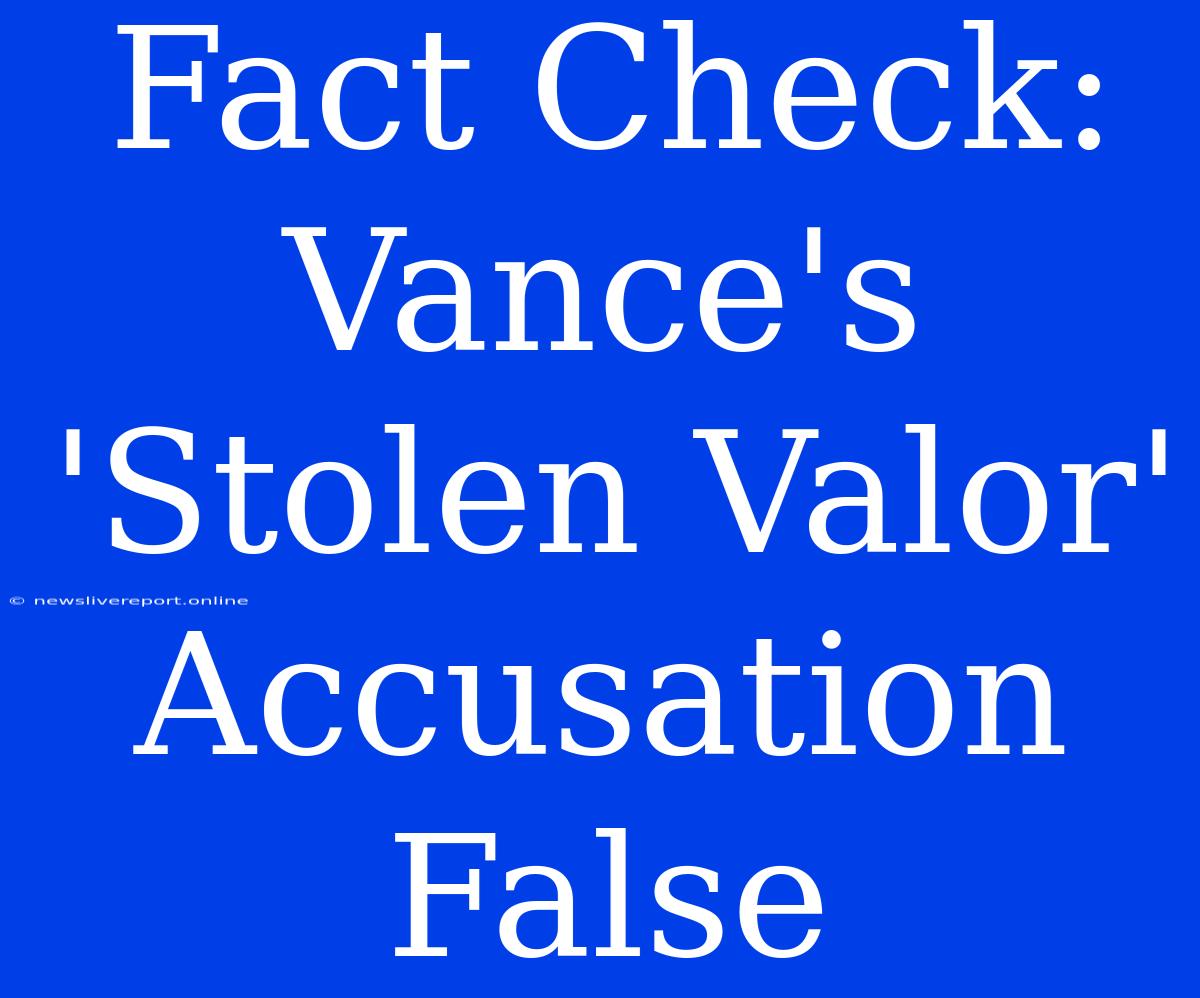Fact Check: Vance's 'Stolen Valor' Accusation False
In a recent campaign ad, Ohio Senate candidate Tim Ryan accused his opponent, J.D. Vance, of falsely claiming a military award. This accusation has sparked a debate, with Vance's campaign defending his actions and Ryan's team standing firm on their claims. Let's break down the facts to separate truth from fiction.
The Claim: Ryan's ad alleges that Vance, a former Marine, claimed to have received a Bronze Star medal while campaigning. The ad further highlights that Vance's military record doesn't actually list the Bronze Star.
The Truth: Vance's campaign has acknowledged that he did not receive a Bronze Star. However, they argue that Vance was mistaken about the award and that he never intended to deceive anyone. They also point out that Vance has spoken about his service record with transparency in interviews and public appearances.
The Controversy: "Stolen Valor" is a serious offense, referring to the act of falsely claiming military honors for personal gain. While Vance's statement was incorrect, the context of his comments and lack of intention to mislead make it a gray area.
What to Consider:
- Honesty and Intent: While the mistake was made, Vance's campaign claims it was unintentional. Assessing his overall honesty and transparency regarding his military service is crucial.
- Campaign Tactics: Ryan's use of the "Stolen Valor" accusation is a powerful tactic. It aims to undermine Vance's credibility and paint him as dishonest. However, it's important to analyze the full context of the campaign ad and its overall messaging.
- Voters' Perceptions: The public's perception of this incident will likely impact voter sentiment. Some may see Vance's mistake as a serious offense, while others might view it as an honest error.
The Takeaway: While Vance's statement about the Bronze Star was inaccurate, the degree to which it constitutes "Stolen Valor" remains debatable. It's essential to evaluate the facts, consider the context, and examine the broader campaign strategy before forming a judgment.

